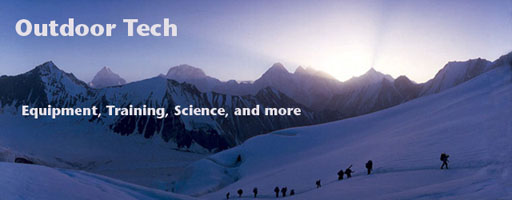 Many people who have suffered at high altitude while watching their climbing partner charge on up a slope have blamed their own fitness. Although it is certainly advantageous to raise your performance threshold (the term lactate threshold is based on an outdated understanding of how the body works) and your VO2max, there may be something else to blame: your parents.
Many people who have suffered at high altitude while watching their climbing partner charge on up a slope have blamed their own fitness. Although it is certainly advantageous to raise your performance threshold (the term lactate threshold is based on an outdated understanding of how the body works) and your VO2max, there may be something else to blame: your parents.
On his Medicine for the Outdoors blog, Paul Auerbach discusses a new paper published in High Altitude Medicine & Biology. Last year, a scientific expedition that climbed Mt. Everest conducted a battery of tests on the team. One of their findings was that a specific gene (ACE I-allele) is associated with better performance at extreme altitude. This backs up a previous study on Mt. Blanc that first showed the possible connection.
Of course, whether you have the gene insertion or not, it is still wise to reach the mountains in the best shape possible. For mountaineering, that also means more body fat (insulation and energy stores) than low-altitude athletes consider desirable.
Another study in the same journal showed that there may indeed be a connection between HAPE and HACE (high altitude pulmonary and cerebral edema), which have long been considered separate maladies. At least to this layman, it always seemed likely that both of these potentially fatal altitude problems were related. Now we have indirect measurements that show edema in the lungs also comes with raised intercranial pressure.

No comments:
Post a Comment